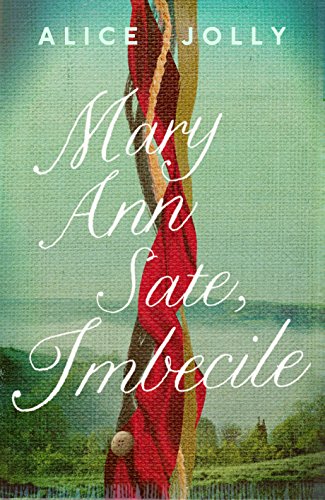Mary Ann Sate, Imbecile
In 1938, during a house restoration, hundreds of pages of a “dusty and battered” manuscript were discovered and miraculously preserved. The story is told in the first person by Mary Ann, consistently using her own limited vocabulary and idiosyncratic grammar. The prose is lyrical, and the construction of her long and complex narrative is astonishingly sophisticated. She moves the action dramatically, almost cinematically, vividly constructing scenes that engage and hold the reader’s attention. All is set in the valleys surrounding Stroud at the time when the uprisings caused by the Industrial Revolution were fuelling discontent and adding to the poverty of local mill workers and agricultural labourers.
Mary Ann’s account begins with her arrival in the valleys, when, disfigured by a hare-lip, she is delivered on a carrier’s cart and left, in the darkness at the roadside. A succession of families takes her in, exploiting her domestic labour in return for a roof over head and minimum sustenance. As the years pass, Mary Ann’s personality develops. She is a diligent, compassionate, perceptive and intelligent girl who, confronted by the eccentric, selfish and often negligent families that exploit her, almost inadvertently, makes small but positive connections with them. One repairs her hare-lip, and another teaches her the rudiments of reading and writing. She accepts her place in this strange society without resentment but in an endearing, unassuming way.
There comes a time when, threatened by the now dangerous politics of the valleys, together with complex relationships within the families with which her history is now entwined, she leaves Stroud, returning as an old woman to fulfil what she now sees as an obligation. When this is done her account ends.
The only record of Mary Ann’s existence is her death in the Stroud Workhouse: “Mary Ann Sate, Imbecile, 9th October 1887”.










